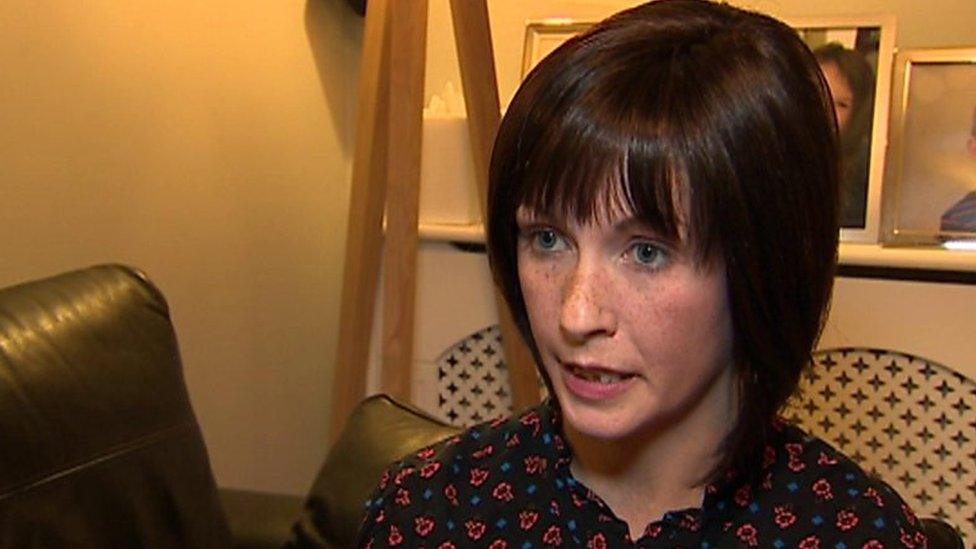Bowel cancer: Online help to beat 'Dr Google'
- Published
Ceri Vickery woke up after her operation - and could tell how it had gone thanks to the video
The days of a doctor just handing a patient a leaflet to read about their condition are numbered.
An online tool is de-mystifying treatment facing bowel cancer patients in Merthyr Tydfil and the surgeon who created it believes the idea could work with many other health problems.
It is 10 years since consultant colorectal surgeon Prof P N Haray first launched a DVD to help patients.
Now the videos are online- and can be accessed around the world., external.
Bowel cancer is the third most common cancer in Wales in men and women; 1,000 people die from it each year in Wales. However, if it is picked up early, it is also one of the most treatable.
Prof Haray, who works at Prince Charles Hospital, decided to produce the DVD to ease patients' worries so that they would know what to expect during treatment and become familiar with the people looking after them.
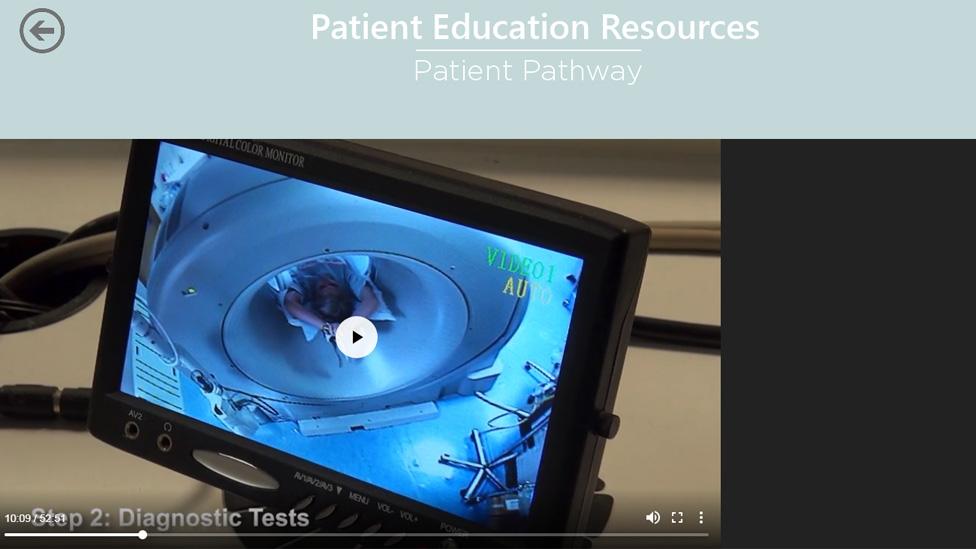
The online video started life as a DVD
Doctors know patients already go online but this was about offering a reliable source instead of them resorting to "Dr Google".
Prof Haray said patients could still be nervous and needed persuasion to view the video.
"Not one person has come back and said I wish I'd never watched it, it's scared me or it upset me," he said. "Most have said I wish I'd watched it three weeks earlier."
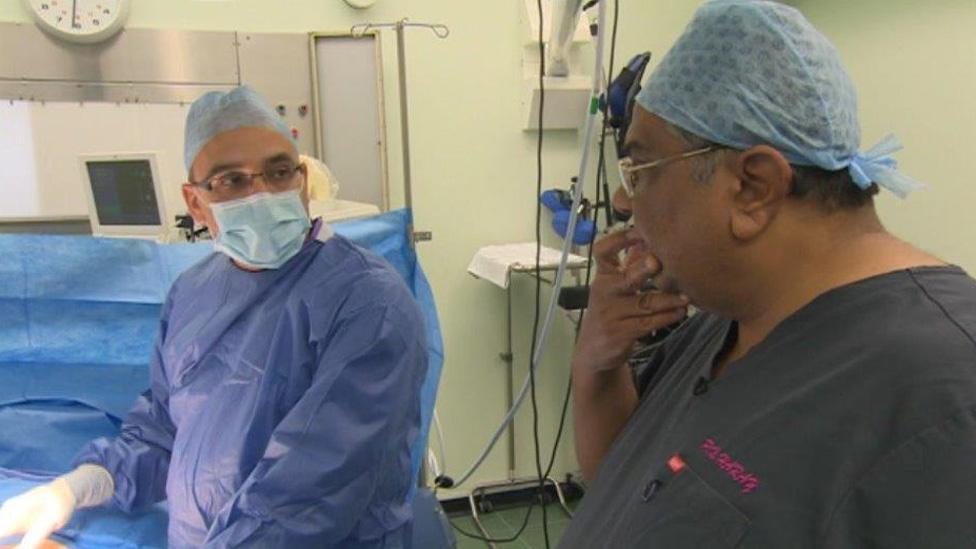
Prof P N Haray (right) and his team during an operation

Ceri Vickery, 72, a former teacher and Inland Revenue worker, had colorectal surgery two weeks ago.
"I was quite surprised to be given a video. I came home, had my tea and watched it one evening on my own, right through. I was exceedingly impressed because when you're given any sort of health news you usually need two pairs of ears.
"But I decided not to tell my two daughters about this until there was something to worry about. But to be able to watch this, from first admission, to possible surgery, all pathways you could go down, it answered all the questions.
"The amazing thing about it was I realised I'd met all the people in the video - they were real people, not just the professor but the nursing staff. That made you feel included. They were a professional team, not just a random set of people gathered together for one operation.
"There was also the whole business of the follow-up - I had a card with the names of the nurses I could speak to if I had any problems and that really was quite reassuring."

The videos are also being used for training staff right across the cancer team.
Specialist nurse Maria Lewis said it meant patients were "on board" at an early stage and better informed but also that staff were "in tune with what everyone does".
Nurse Naomi Baker added: "Medicine is evolving all the time and it's a natural step from the DVD to put it on the website. It's about the teamwork and we all have an important role in the patient process."
Among hospitals abroad which are using the Merthyr approach is Tata Memorial in Bombay, one of the biggest cancer units in the world.
Associate professor Dr Avanish Saklani organises his team in India in the same way as Prof Haray's in Merthyr and said "websites like this offer a great deal".
He spent some of his training in Wales and believes the approach can be replicated.
"Prof Haray is a a pioneer in colorectal corrective surgery, a pioneer in teaching it and more than that, the great attributes to a leader is not how many followers he has but the number of leaders he creates," he said.
Mel Jehu, an independent member of Cwm Taf health board, said the approach had "huge potential" not just in Wales but across the UK and even internationally.
"Of all the projects I've worked on, this is about the patient experience, patients are involved - and we have patients who have taken the journey with Prof Haray and are now assisting and advising us."

You might be interested in these stories too:

Prof Haray said: "It can grow as much or as little as the NHS wants to take it to grow. There's no reason why the same website can't host something for lung diseases or diabetes, if there's someone who is willing to take this forward in their respective areas, we could have offshoots for gynaecology, breast surgery or in-growing toenails - it has infinite capacity.
"Writing textbooks is not the answer, you have to work with the medium which in today's world is interactive and digital."
The Merthyr project relied on grants from educational institutions rather than NHS funding but it has come about due to the passion and commitment of a small team.
Spreading good and sometimes simple ideas around Wales is one of the recommendations in the Welsh government's recent health strategy.
Prof Haray said even with the NHS under tight resources, innovative ways of doing things have to be supported.
- Published25 July 2018
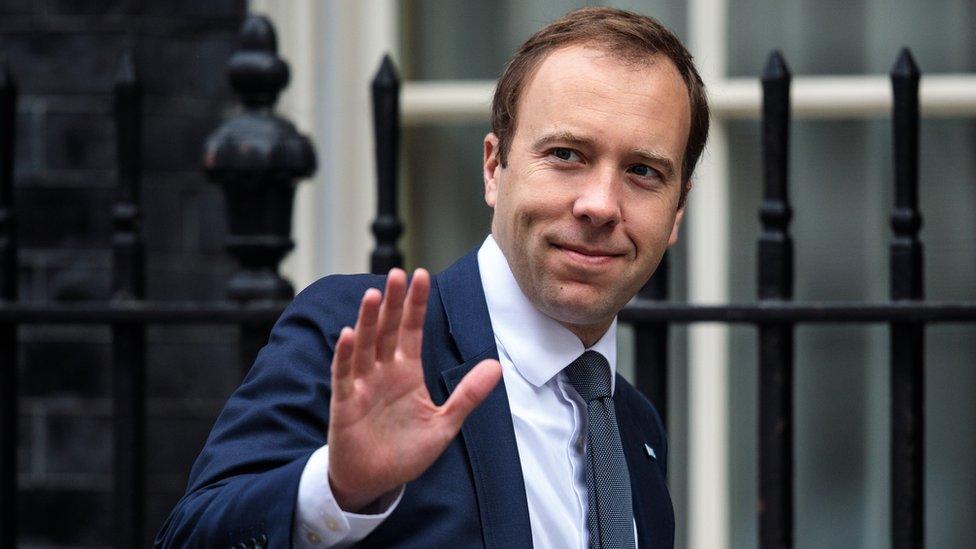
- Published27 March 2018
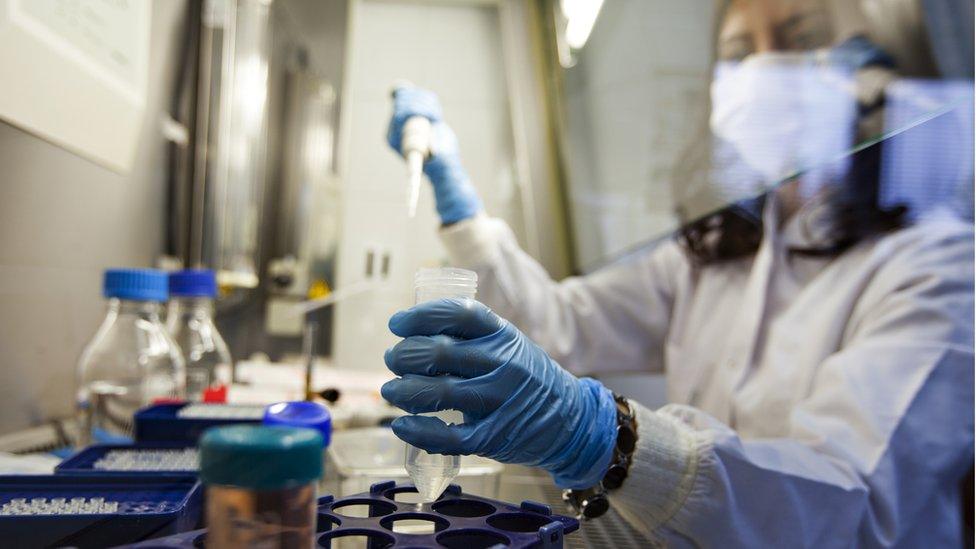
- Published6 February 2018
